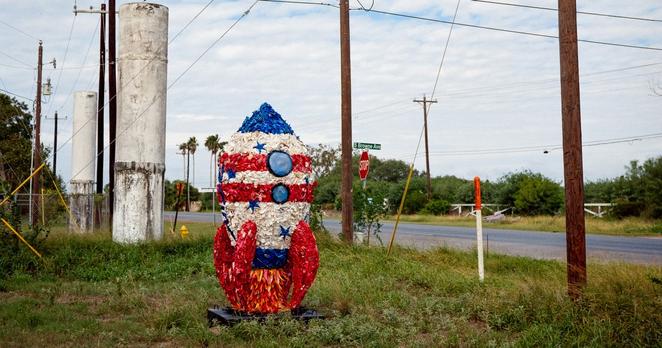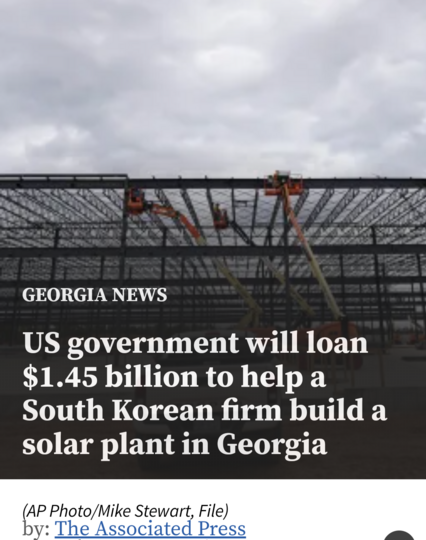Recent searches
Search options
#incentives
OK, I have a lot of beefs with organizations I also really like (or sometimes love). On FB there is a group called "The Professor Is Out" (#tpio?). They are a support page for people leaving academia, which is something I want to do, for many of the same reasons as everyone else.
However, TPIO mods can be a bit... well.
Any post suggesting we think carefully about how and where we jump from academic gets something between a smackdown ("you're not supporting people in toxic situations") to just being deleted.
I found this out when I saw a string of posts suggesting that humanities profs (who have fewer non-academic options than some other fields) jump to join #educorporate instructional technology companies or do #ux for FAANG corps and their associates. I made what I thought was a very careful post saying you gotta do what you gotta do to pay the bills, but the exodus from academia into some of the more problematic areas of industry transfers intellectual capital from public institutions to those actively (in many cases) trying to destroy them.
Like I said, it was carefully worded and not inflammatory like what I said above. It was couched. Couched, I say!
Got a serious chewing-out by the mods for failing to support vulnerable people, victim-blaming, and maybe some other stuff.
Come on, mods, I get it. But two things can both be true. If the only way I could pay rent/mortgage and my daughter's life expenses was doing UX for #facebook or A/B testing for #google, I'd do it in a second. At the same time I very much hope those aren't my only options to exit academia.
And then I found that one or more of the TPIO mods have launched a for-profit job coaching service for the academics the page serves.
I don't claim there are shenanigans going on, but I do have a belief that incentives matter, and misaligned #incentives can lead to misaligned outcomes.
I have not made a helpful post about how humanities faculty in toxic work situations might find more lucrative careers in job coaching for academic faculty who are in toxic work situations.
As a child, Mathew Desmond experienced poverty firsthand.
He saw his family home repossessed and endured the stresses and humiliations of his family’s lack of means.
It raised the question that he would go on to dedicate his professional life to answering:
Why is there such stark #inequality in America?
The hard truth, he said, is that so many of us benefit from it.
Desmond shared a litany of statistics illustrating the growing burden of poverty and inequality in the United States:
• 1 in 3 families live in a household that has an income of $55,000 a year or less.
• 38 million people are below the federal poverty level of $30,000 for a family of four.
• Evictions have increased by 22% since the turn of the century.
• The number of public-school kids who are unhoused has increased by 74% since the turn of century.
• The amount of inflation-adjusted, non-mortgage debt has increased by more than 200% -- and the number of families reporting no income apart from food stamps has quadrupled since the 2008 recession.
• Since 1985, rent increases have outpaced wage growth by 325%.
• Each year, people are charged $11 billion in overdraft fees and $10 billion in payday loan fees.
“So, here's one reason there's so much poverty in America today:
because the poor are #exploited,”
said Desmond, author of the Pulitzer Prize-winning book "Evicted" and his more recent work "Poverty, by America".
“I think it's a word we should use more.”
The exploitation is perpetuated, not only by the corporations, financial institutions, and landlords who withhold fair wages, charge exorbitant fees, and profit off those in poverty,
but also by affluent Americans who benefit from the exploitation, he said.
Desmond quoted an analogy from novelist Tommy Orange,
“Kids are jumping out the windows of burning buildings, falling to their deaths. And we think the problem is that they’re jumping.”
The American approach to poverty has often been to focus on those who are poor and what they can do to uplift themselves -- rather than changing the systems that keep them poor.
This can be uncomfortable for those whose #property #values are protected by segregation of affordable housing,
those who have invested in the #stock #market and make money when exploitative corporations net profits,
and those with #free #checking #accounts that are subsidized by the poor who pay fees for their lack of capital, he explained.
The affluent also benefit from government subsidies more than the poor, he said.
According to Desmond, the #wealthiest families in the United States receive an average of about $35,000 annually in tax benefits, while the #poorest get an average of
$25,000 in subsidies.
These are realized in #mortgage #incentives, special #investment #accounts, like #529 accounts that help pay for college, and other #tax #breaks for the wealthy.
Many affluent families further contribute to poverty by building communities that exclude and marginalize the poor
— pushing them out of their neighborhoods using #zoning ordinances, Desmond said
https://www.aamc.org/news/we-can-solve-poverty-america-we-just-don-t-want
For Donors Getting Started in Support for #Gun #Safety
Give through a funding intermediary or collaborative.
Donors uncertain about which organizations to support directly may consider supporting a funding intermediary like the Fund for a Safer Future https://www.fundforasaferfuture.org/
or the Hope and Heal Fund https://hopeandhealfund.org/
Make sure you understand the different types of nonprofits and political groups and what that means for your giving.
The examples we cited above include different types of organizations, from standard 501(c)(3)s to the more politically minded (c)(4)s, as well as PACs.
Donors should read up on the different #limits and #tax #incentives when it comes to giving to these groups,
especially when looking to give through a foundation.
Many of these groups also maintain multiple related but different organizations operating under similar names but different legal structures, so donors should also always double check that they’re giving to the group they intended to support
#Taxpayers #LetTheSunshineIn : U.S. #DOE grant expected to fund majority of $2.2 billion complex for #Qcells (division of #SouthKorean #Hanwha Group) to build a solar plant in #Georgia.
President Joe #Biden’s #InflationReductionAct, gives tax credits on #AmericanMade solar gear, plus allows manufacturers to earn #incentives for every unit of #polysilicon they refine in every wafer, cell and module they make in #USA.
A US Dept of #Energy spokesman said “The domestic demand for #solar modules in 2026 is expected to be around 50 #gigawatts. We’re expecting to produce about 40 gigawatts in 2026, So that means 80% of the (#solarpower) modules that we deploy in the United States in 2026 is expected to be domestic.”
The playbook that Jeff #Bezos, #Musk, and others have relied on isn’t new.
More than a century ago, the railroad tycoons of the #Gilded #Age enticed towns to hand them favorable deals in exchange for laying lines that passed through their communities.
The supposed benefits of these projects rarely materialized:
Many of the promised tracks were never completed, or the routes were discontinued soon after their construction.
Worse yet, the towns often had to impose steep new #taxes to offset the #incentives, triggering a wave of municipal defaults.
The trend of unmet promises by corporate titans has continued into the present day.
#Tesla’s Buffalo plant has created just 54 cents of economic benefit for every subsidy dollar the state invested, a state audit found;
the initial contract has been amended several times, extending completion dates and reducing employment targets.
#Amazon announced it was pausing construction on the second phase of its Virginia headquarters.
According to the governor’s office, the number of Wisconsin jobs #Foxconn initially promised to create has dwindled by 89 percent.
And then there is Boca Chica’s Starbase.
https://www.motherjones.com/politics/2024/01/elon-musk-spacex-texas-boca-chica-oligarchy/

Dear #LinkedIn
1. I am on your site because I need the visibility and information for a career transition, not because I like your site.
2. I pay for premium for the reasons above, not because I deeply love LinkedIn.
3. If you want Premium subscribers to fill out surveys about their Premium experience, there is an obvious motivator: give me a month free.
4. I would very much like it if the website could *stay* in dark mode for more than a week.



